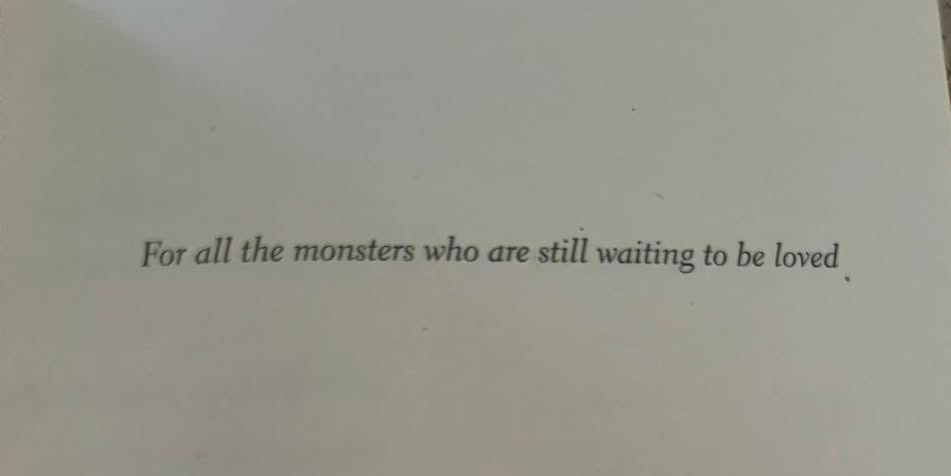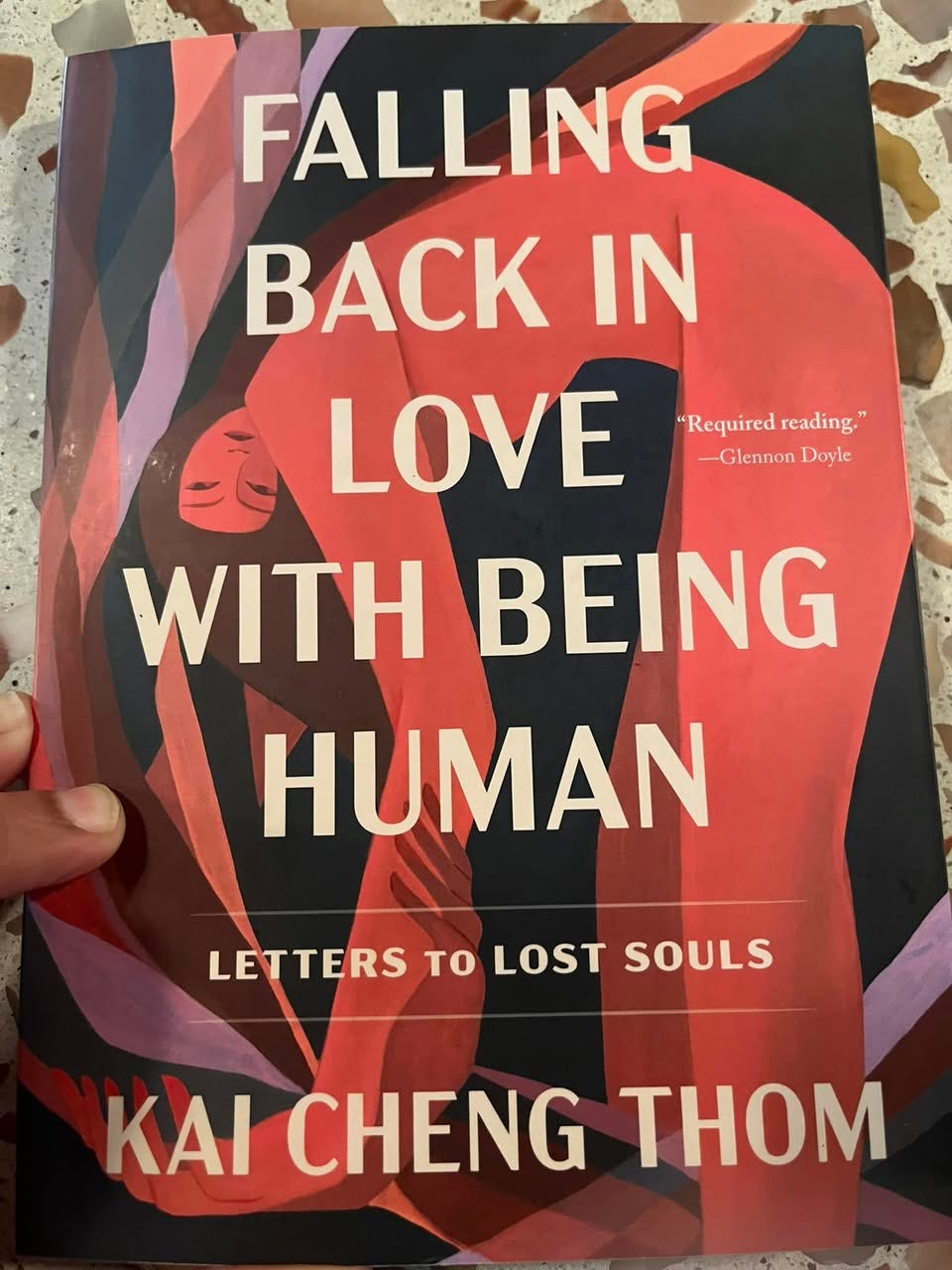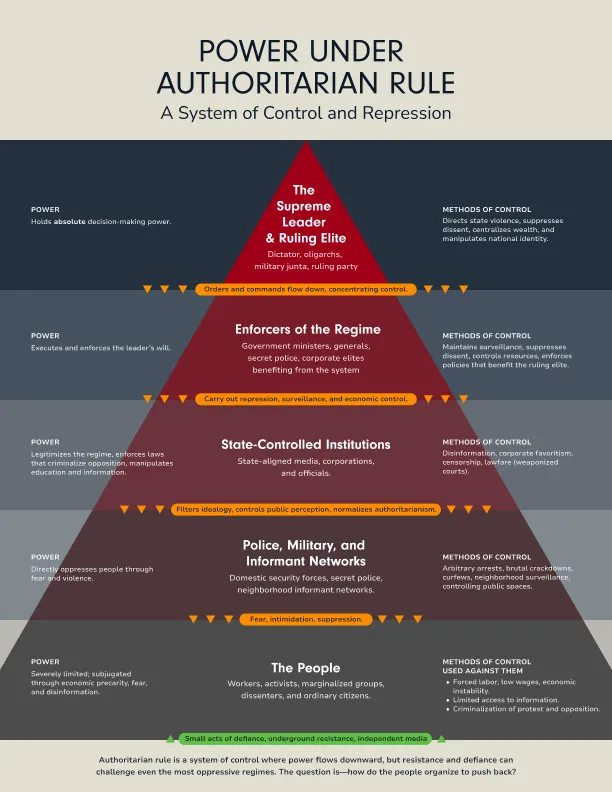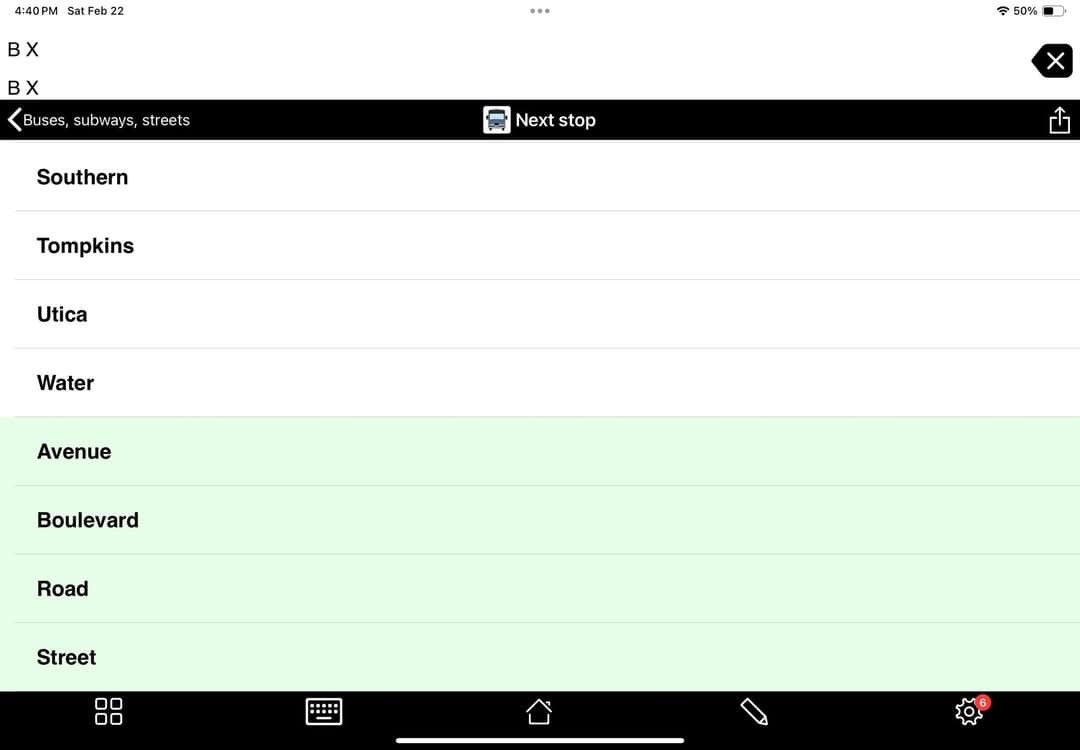If we can’t imagine true inclusion, we can’t fight authoritarianism
And LOTS more about inclusion, and one thing about AAC sentences
I’ll leave you with this - imagine what it would be like if half or even a quarter of Americans were constantly talking about every disabled kid being meaningfully included in school together, and what that would look like? Imagine how powerful we would be. It starts with you.
In this important issue…
Background - Do you know what segregation and inclusion are?
What would you do if you *had* to be truly inclusive? (Mar 7)
On how I don’t really have an inclusive attitude myself (as is very apparent right now) (Mar 7)
If we can’t imagine true inclusion, we can’t fight authoritarianism (Mar 8)
Disabled, autistic adult shares his experience being segregated in school (Mar 8)
Segregating students is illogical because disabilities aren’t static (Mar 10)
On... his first multi-word sentence on a Speech Generating AAC device! (Mar 12)
Background - Do you know what segregation and inclusion are?
If you’re new here you may be confused about why I keep harping on inclusion in schools. You may think your kid is in an inclusive school or, like me 5 years ago, not think much about it and assume all kids go to their local public school.
There’s a 99% chance wherever you are, some disabled kids get segregated in or out of schools. Kids like A-.
A lot of schools claim they’re inclusive, but they just mean some disabled kids can be in them. That’s like claiming you’re inclusive and allowing gay people but not trans people into your space. Some have disabled kids in a “special” class and allow them to come together for art or recess (replace “disabled” with “Black” or “trans” and you’ll see how problematic that is). Many places, like NYC, have good marketing to pretend they’re inclusive but they mean “for everyone but that kid”.
Read my zine to get more details on how this showed up for us when A- was just 2 years old and was already being forcibly segregated.
What would you do if you *had* to be truly inclusive? (Mar 7)
What if I told you you were running a school district and you could not forcibly segregate anyone based on race, gender, sexuality, or disability? It was now against the law.
What would you do? How would you set it up to work?
I've got to be honest, I'm getting sick of people starting the inclusion conversation with "yes but...". The moment you start any sort of conversation about human rights with "yes but..." we will not change who we see as human.
I've noticed it's hard for people to stretch their imaginations and imagine a school system where everyone belongs. But what if you HAD to? Could you figure out how to make it work? My hunch is, you absolutely could. This isn’t a rhetorical question!
Vail County, AZ, became inclusive btw by doing just that. They simple said “We cannot segregate anyone... now what?" and they did the "now what". This is the only time I’ve read a research paper and cried. Highly recommend.
Here’s my non-expert response, off the top of my head:
First, teachers would be trained on how to make learners out of young people rather than teach curriculum in a certain way. So their job would ensuring everyone leaves school knowing how they learn, in addition to having learned some things.
Universal design for education would be used to ensure basic levels of common accessibility for all, and then how to layer on beyond that. There’d be curriculum adaptation specialists who go school to school when teachers and students are stuck.
Anyone can have accommodations and environmental needs met - not based on a disability, but simply the needs of bodies. But students would be learning how to do this for themselves and their peers, so it doesn’t all fall on the teacher.
Instead of “special education experts” (wtf is that anyway???) there’d be people who specialize in understanding some very specific needs. For example, assistive tech experts, experts on modifications for physical disabilities, experts on autism, etc. These experts aren’t making blanket statements about someone’s needs based on disability, but instead could be part of a conversation to help figure out what is needed.
Families would be more involved. After all, we’ve had to become experts in our own kids, right?
And lastly, students themselves will drive how curriculum can be adapted for themselves and their peers. There are great examples of this in action in Paula Kluth’s book.
Interestingly… none of what I just wrote is made up fiction. I took it all from places that already do one or all of these things. This isn’t a fantasy novel.
On how I don’t really have an inclusive attitude myself (as is very apparent right now) (Mar 7)
kai cheng thom is one of my favorite people - someone I found out about a while ago. She's a Chinese-Canadian transgender woman who was a sex worker and is now a social justice activist, psychotherapist, mediator, facilitator, cultural activist, etc. One of our first children's books for A- was a book by her, and one of my favorite books is Fierce Femmes and Notorious Liars (so much so that I bought multiple copies).
For my birthday this week, Daniel bought me a recent book by her "Falling Back in Love With Being Human: Letters to Lost Souls." This, btw, is my gift to all of you as well. She writes love letters she's shared over time to those we want to hate - ex's, runaways, compulsive caregivers, and even J.K. Rowling. She shares that without loving the monsterous parts of others, we cannot love the monsterous parts of ourselves.
Recently, she also wrote an essay for movement-builders (and everyone) called the Wisdom of the Divergent Voice. Sharing that we MUST work across parties, opinions, perspectives, towards a common fight - billionaires and authoritarians. In her words "In order to transform Leftist culture into an ecosystem strong enough to overturn fascism and transform our world for the better of all peoples, we need to practice hearing the wisdom of the Divergent Voice."
I believe in this so strongly, and it also feels like an unsurmountable challenge for me. I live in a bubble of my creation, that I love. I find it very, very hard to talk to people with different views than me. And yet, I believe it is absolutely essential. And very hard to do.
Reading her poetic letters of hope, it hit me that I cannot be sitting here saying "Inclusion, inclusion, inclusion! Inclusion is a human right! True belonging for A-!" if what I actually mean is "Inclusion only for people with the same opinions as me! Inclusion only for those who believe in inclusion!" Inclusion is an inherent right for everyone. Including those I do not like. Including those, somehow, who’s beliefs harm A-. How can I fight for inclusion for A-, if I don't actually believe that everyone should be included?
If we can’t imagine true inclusion, we can’t fight authoritarianism (Mar 8)
Yes. It’s that serious.
You are not going to be able to fight authoritarianism if you can’t imagine what belonging for disabled kids can look like...with no budget constraints, sky’s the limit, if it still isn’t possible.
It's an issue because it means your fight is surface-level, and you aren't willing to dig deep and look inside yourself, and believe in the freedom you’re asking for.
Why? Because authoritarianism thrives on pushing a narrative that only some people are worthy. That only one kind of person belongs in this country. In this world. Anti-authoritarianism fights against that - even if you don't know how, you have to know what it would feel like to believe everyone is worthy. You can’t just believe that trans people deserve medical care. That Black and Brown people shouldn't be deported. That disabled people deserve Medicaid. But that they all belong. That everyone is fully, fully human, in every aspect of living. This includes children. This includes school.
And if you can't even practice imagining what that would look like - given free reign and unlimited resources - then you're just saying phrases that you think are progressive without doing the work at talking about belonging.
Authoritarianism thrives on saying that only some people (white billionaire men) have the authority to control everyone else's bodies. So if you can't do the work of saying "What would it look like for the disabled child who is treated as non-human to get to control what their lives look like? And how can I be part of making that happen?" then you still aren't actually anti-authoritarian.
And remember - this is an intersectional issue. If you believe that Trans people and Black people should be fully included in school, but not all disabled people, then you're missing the research that shows school segregation disproportionately segregates Black people. That autistic people are disproportionately more likely to be Trans. You simply cannot have a line for inclusion that ends at the most disabled people. It does not work that way. You either believe in meaningful inclusion for everyone, or you believe that people should be segregated based on gender, race, and disability.
I’ll leave you with this - imagine what it would be like if half or even a quarter of Americans were constantly talking every disabled kid being meaningfully included in school together, and what that would look like? Imagine how powerful we would be. It starts with you.
Disabled, autistic adult shares his experience being segregated in school (March 8)
And my follow-up... This great article by David Rivera.
It makes me deeply uncomfortable that the people leading the "yes but.." responses are not the people who are being segregated themselves. At best, it's an autistic person who was put in a GenEd class with no meaningful support and wishes they didn't have to suffer through schools. At worst it's.... all of us who have no business telling someone they aren’t allowed in.
I have yet to hear a single segregated disabled adult say "I'm so glad for my amazing educational experience in a forcefully segregated class / school". And so we need to "close my mouth and learn to listen" (in the words of Rising Appalachia).
I was separated from my general education peers all day and would see them only during recess. This made it quite difficult to connect with them, as we had no class time together. I was quite timid, so approaching anyone from the general education classes made me very nervous.
When I moved on to general education in middle school, I found that special education hadn’t prepared me at all. I kept failing my classes, despite my best efforts, and I failed to graduate. Special ed also didn’t help me with my social skills, as I made no friends in elementary or middle school.
I felt like I had been thrown into a lion’s den without any weapons. I was not prepared in the slightest.
Something is terribly wrong with a special education system that consistently fails those it is supposed to help. An analysis from the Center for American Progress shows that special education students are substantially less likely to graduate from high school than their general education peers. The same analysis showed that, in 2015, students with disabilities were substantially less likely to be at or above proficiency in mathematics or reading.
This is a system that needs radical reform.
It cannot be overstated how demoralizing being put in a segregated classroom is. It makes you feel like you have a pathology that hurts other students. It makes you feel like you’re less intelligent and less capable. My classmates at the time told me it felt like we were hopeless causes. My peers said this in elementary school. Nobody should have to go through that, especially at a young age.
Second, schools need to abandon the cookie-cutter approach to special education students, where everyone is taught the same way and receives the same accommodations. At the neurodiversity-affirming high school I went to, every student was taught differently, at their own pace. Because of this I went from being a middle schooler at a 4th grade reading level to an undergraduate at UC Berkeley and the founder of a nonprofit, Mentoring Autistic Minds.
Third, students with disabilities and their families should be allowed to decide what services and programs they receive. At the moment, schools often make these determinations.
Power in authoritarianism - and you (March 9)
A great visual from the anti-authoritarian playbook of how power works in authoritarian countries.
Also think about inclusion of disabled kids, and your view, and where you stand in this pyramid. Are you pushing back? Are you giving into what those with power say is possible? Giving into scarcity? Ruling over others with less power than you? This is why I say that your ability to imagine, at least, what true inclusion could look like is directly linked to your ability to push back in a meaningful way against authoritarianism.
Segregating students is illogical because disabilities aren’t static (Mar 10)
Reason 100 why segregating by disability doesn’t make logical sense. It assumes disability (and abilities) are constant. OR if it doesn’t, then it doesn’t care at all about the psychological impact of shuffling kids from class to class or school to school when their needs change.
I just saw a parent posting about how their kid is in a NEST class - one of those programs incorrectly touted for its incredible inclusiveness - but that it isn’t working for their kid anymore so what schools are there for a kid with their exact profile. So, to change schools.
And there was that heartbreaking story of the kid who took his life because he was going to be forced to switch schools because his current school couldn’t meet his needs. The media made this out to be a private school issue, but the reality is the same thing would have happened to him in a public school.
People aren’t static. Kids aren’t static. Disabilities can come and go. Needs come and go. Is it really the best thing to force a kid to move to a brand new environment at the same time that they have new greater needs for some reason (a reason that could be quite traumatic!).
On... his first multi-word sentence on a Speech Generating AAC device! (March 12)
This Monday, our SLP suggested we change the voice on A-s AAC every week.
Today (Tuesday), A- used P2Go to say “This stop is Southern Boulevard”!
This is from the new page we made of just a list of bus stop words - it scrolls down probably 5 pages deep.
A- actually said something like “This stop is 15 15 15 Horace Harding Southern Boulevard”, but Southern Boulevard is one of his favorite streets, and to say that he had to piece together all the parts of that sentence by scrolling down many pages.
For those of you who are new, A- has never really taken to his talker after years of modeling and 2 different apps. He did at the beginning - using it for so many great purposes - but eventually stopped and stopped letting us model. We’ve tried changing the voice, and recently tried a list view for his favorite bus stop vocab instead of icon-based, but I think our SLP was right suggesting we change the voice every week.
As far as I can remember this is his first time ever piecing together a full sentence, or many many words, on a speech-generating AAC app.
What I’m listening to
If you don’t already know the Think Inclusive podcast, you must! Some of it features in my list of the most important resources in our parenting journey. This is a podcast for anyone with kids, but also for anyone who’s felt like they don’t belong and haven’t been sure if it’s them, or the system.
The irony of segregating children in order to allow them to belong is absurd! We’re going to remove the kids from their natural place of belonging, because they don’t belong?? And so we’re going to segregate kids to help them find community?? And never once was there a discussion about, well how can we make those places, places of belonging. You’re removing the child who doesn’t belong, instead of addressing why the space is rendered that way, and what could be done to change that?








